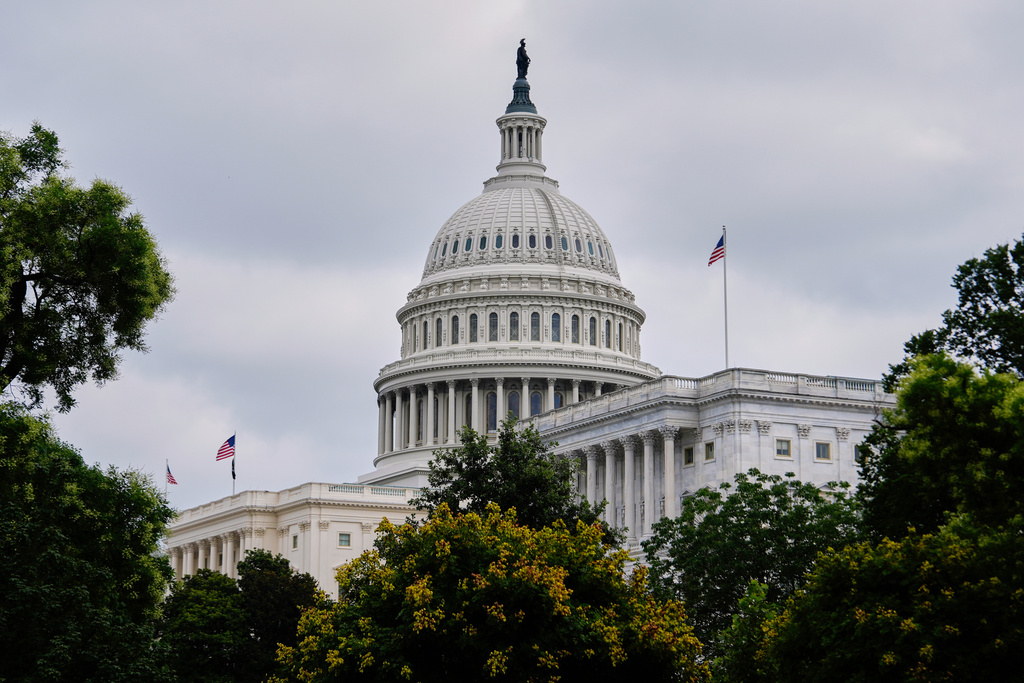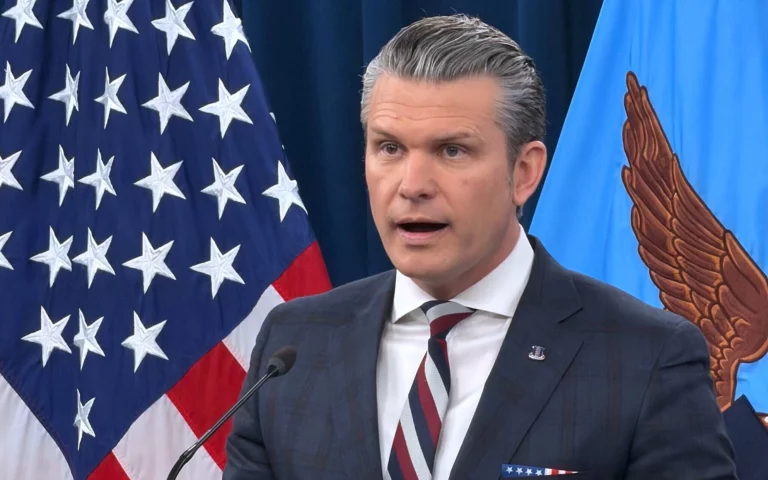The House has passed three bills intended to boost the legitimacy of the cryptocurrency industry with new regulations as President Donald Trump has pushed to make the U.S. the “ crypto capital of the world.”
One of the bills, which would regulate a type of cryptocurrency called stablecoins, had already passed the Senate with broad bipartisan support and will now head to Trump’s desk. The other two bills — broader legislation to create a new market structure for cryptocurrency and a bill to prohibit the Federal Reserve from issuing a central bank digital currency — will go to the Senate.
Advocates said the passage of the bills marks a key moment in cryptocurrency’s winding path toward mainstream adoption.
Patrick McHenry, the former chair of the House Financial Services Committee and now vice chair of the crypto firm Ondo Finance, said the legislation will have a “massive generational impact,” similar to the securities laws Congress passed in the 1930s that helped make Wall Street the center of the financial world. “These bills will make the United States the center of the world for digital assets,” he said.
The stablecoin bill sets initial guardrails and consumer protections for the cryptocurrency, which is tied to a stable asset, often the U.S. dollar, to reduce price volatility. It passed the Senate with bipartisan support in June.
“Around the world, payment systems are undergoing a revolution,” said House Financial Services Chair French Hill of Arkansas as lawmakers debated the stablecoin legislation Thursday morning. Hill said the bill will “ensure American competitiveness and strong guardrails for our consumers.”
After Trump declared it “crypto week,” the bills were stalled for more than a day amid disagreements among House Republicans about how to combine the legislation. In the end, GOP leaders put the three bills for a separate votes, leaving the fate of the other two bills unclear in the Senate. The internal dissent could foreshadow challenges ahead for the more sweeping crypto legislation that Trump has demanded and the industry has poured millions into advancing.
The stablecoin measure is seen by lawmakers and the industry as a step toward adding legitimacy and consumer trust to a rapidly growing sector. Treasury Secretary Scott Bessent said in June that the legislation could help that currency “grow into a $3.7 trillion market by the end of the decade.”
The bill outlines requirements for stablecoin issuers, including compliance with U.S. anti-money laundering and sanctions laws, and mandates that issuers hold reserves backing the cryptocurrency. Without such a framework, Republicans on the Senate Banking Committee in a statement warned, “consumers face risks like unstable reserves or unclear operations from stablecoin issuers.”
While the bill has significant bipartisan support, it has also faced pushback from Democrats who say the legislation should address Trump’s personal financial interests in the crypto space.
“No one should be surprised that these same Republicans’ next order of business is to validate, legitimize, and endorse the Trump family’s corruption and efforts to sell the White House to the highest bidder,” said California Rep. Maxine Waters, the top Democrat on the Financial Services panel.
A provision in the stablecoin bill bans members of Congress and their families from profiting off stablecoins. But that prohibition does not extend to the president and his family, even as Trump builds a crypto empire from the White House.
In May, the Republican president hosted a private dinner at his golf club in Virginia with top investors in a Trump-branded meme coin. His family holds a significant stake in World Liberty Financial, a crypto project that launched its own stablecoin, USD1.
Trump reported earning $57.35 million from token sales at World Liberty Financial in 2024, according to a public financial disclosure released in June. A meme coin linked to him has generated an estimated $320 million in fees, though the earnings are split among multiple investors.
Some Democrats also criticized the bill for creating what they see as an overly weak regulatory framework that could pose long-term financial risks. They’ve also raised concerns that the legislation opens the door for major corporations to issue their own private cryptocurrencies.
“If this bill passes, it will allow Elon Musk and Mark Zuckerberg to issue their own money. The bill still permits Big Tech companies and other conglomerates to issue their own private currencies,” said Massachusetts Sen. Elizabeth Warren, the top Democrat on the Senate Banking Committee.
The other main crypto bill the House passed aims to provide clarity for how digital assets are regulated. The legislation defines what forms of cryptocurrency should be treated as commodities regulated by the Commodity Futures Trading Commission and which are securities policed by the Securities and Exchange Commission. In general, tokens associated with “mature” blockchains, like bitcoin, will be considered commodities.
The crypto industry has long complained that unclear laws have made it difficult to operate in the U.S. and that the Biden administration tried to regulate it through enforcement actions rather than transparent rulemaking. Getting this bill passed has been a top priority for the industry, which has quickly become a major power player in Washington thanks to heavy campaign donations and lobbying.
The third bill prohibits the U.S. from offering what’s known as a “central bank digital currency,” which is like a government-issued form of digital cash.
(AP)












One Response
A government sponsored ponzi scheme! Interesting liability question.